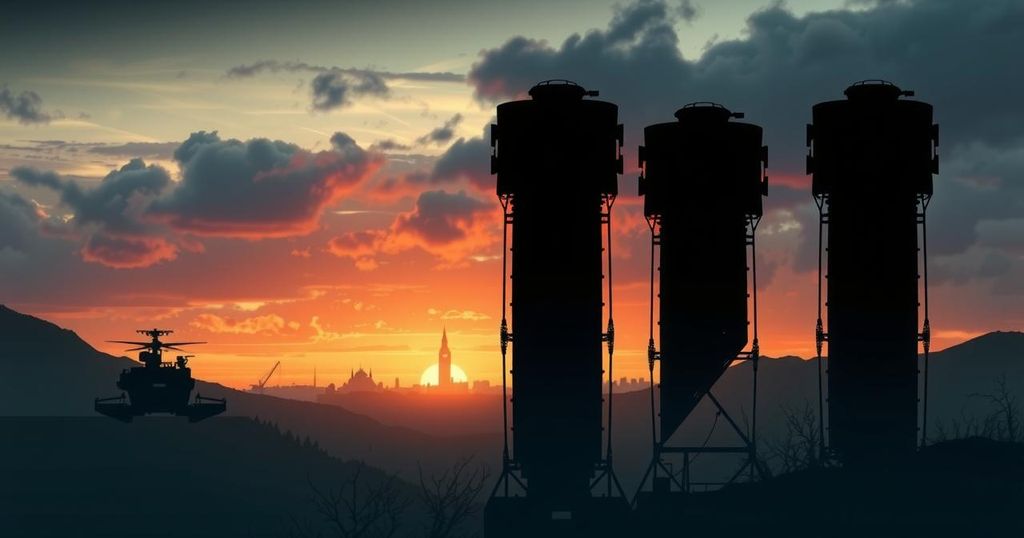The Sudanese conflict persists with fighting between the SAF and RSF, who are vying for control amidst a dire humanitarian situation. The RSF’s efforts to form a separate government highlight their loss of international credibility, while the SAF makes territorial gains. Experts caution about potential escalation as foreign interests complicate peace efforts.
The Sudanese conflict, now nearing its second year, remains characterized by intense fighting between the Sudanese Armed Forces (SAF) and the Rapid Support Forces (RSF). The RSF has sought to establish a parallel government, amidst accusations of war crimes and a significant loss of international credibility, according to Sudanese analyst Jihad Mashamoun. This move appears motivated by a need for legitimacy, paralleled by Libya’s division under rival factions.
Following considerable territorial losses, the RSF signed a political charter in Kenya declaring their intention to govern separately from the Sudanese authorities. The RSF’s leader, Mohamed Hamdan Dagalo, faces increasing international isolation and criticism over the conflict’s humanitarian toll. Concerns arise that a successful RSF government may embolden armed uprisings in neighboring Chad and aggravate migrant pressures on Europe.
Meanwhile, the SAF has made substantial territorial gains, recently capturing El-Obeid and advancing within Khartoum. Alan Boswell of the International Crisis Group notes these developments could shift fighting toward regions such as Darfur if the SAF gains complete control of the capital. The capture of Khartoum stands as a critical objective that would signify a victorious reclaiming of state authority against the RSF.
Mashamoun highlights that the ongoing conflict may lead to further fragmentation in Sudan, with potential negotiations cropping up as the RSF’s legitimacy declines. However, uncertainties remain regarding the war’s resolution, with Boswell cautioning that foreign influence may escalate tensions rather than encourage peace. The involvement of external powers could complicate the situation, potentially influencing internal dynamics within Sudan and its neighboring regions.
Experts assert that while the momentum currently favors the SAF, a resolution may not be near, as conflicts could bleed into a power struggle involving external stakeholders. Discussions regarding the conflict’s future are likely to revolve around regional powers, such as Egypt, Saudi Arabia, and the UAE, which possess significant influence over the situation in Sudan. Both analysts emphasize the need for a more robust international response to effectively address the perpetuating violence and its humanitarian consequences.
In summary, the ongoing conflict in Sudan remains highly complex, with competing forces vying for control and legitimacy. The RSF’s attempts to form a parallel government and the SAF’s military advances signal shifting dynamics, yet the future remains uncertain. The humanitarian crisis continues to escalate, necessitating urgent international attention and intervention to prevent further deterioration of the situation.
Original Source: www.aa.com.tr






